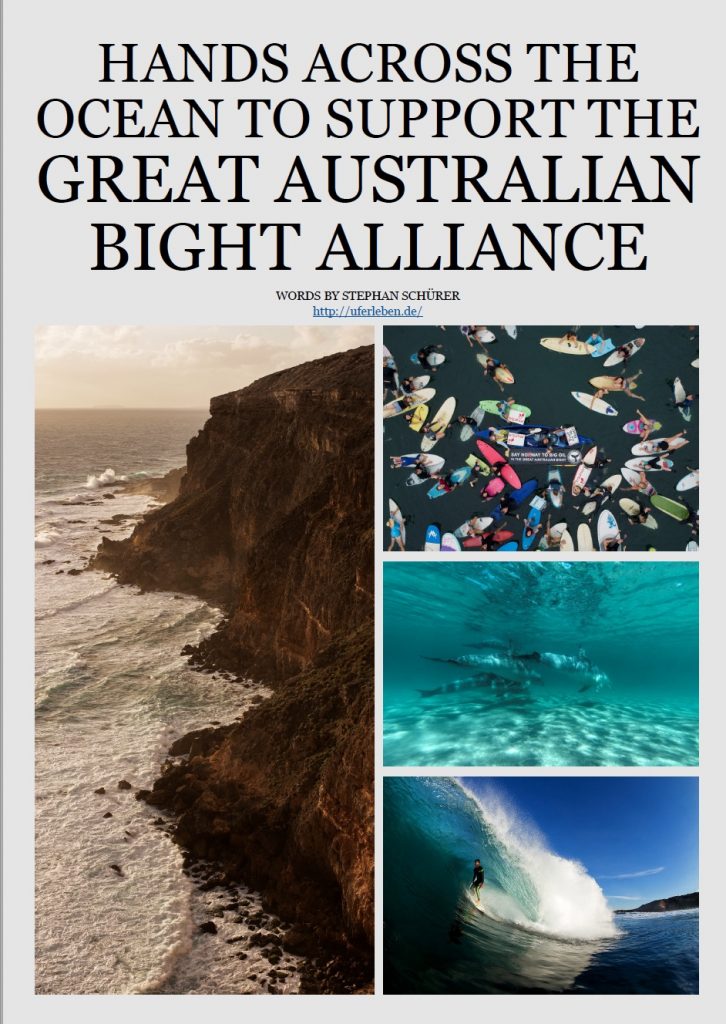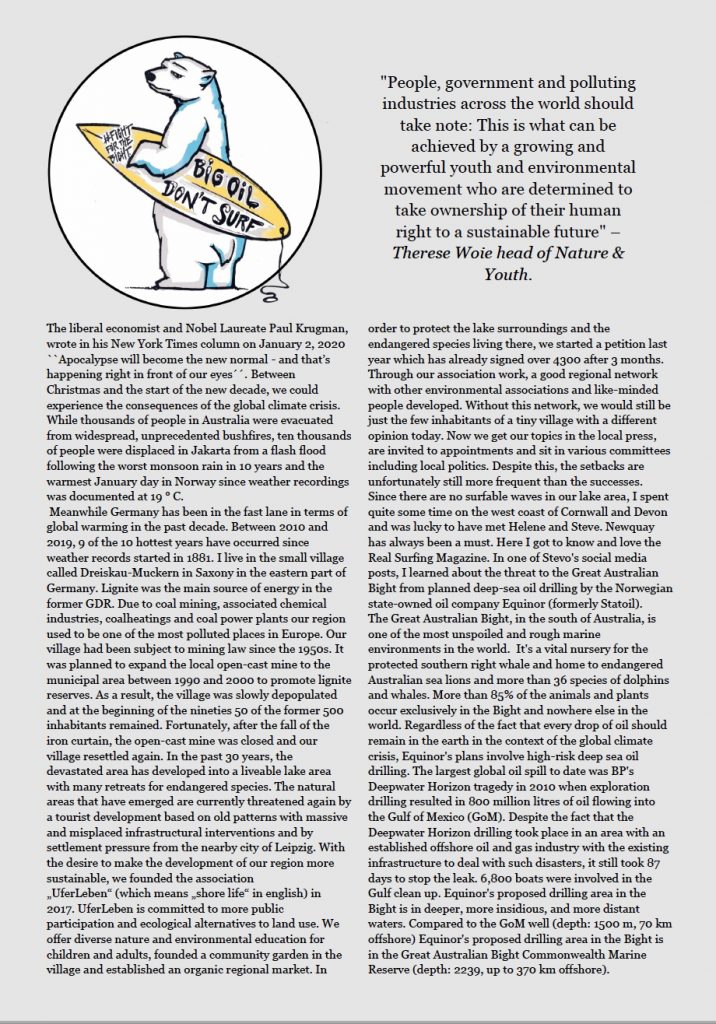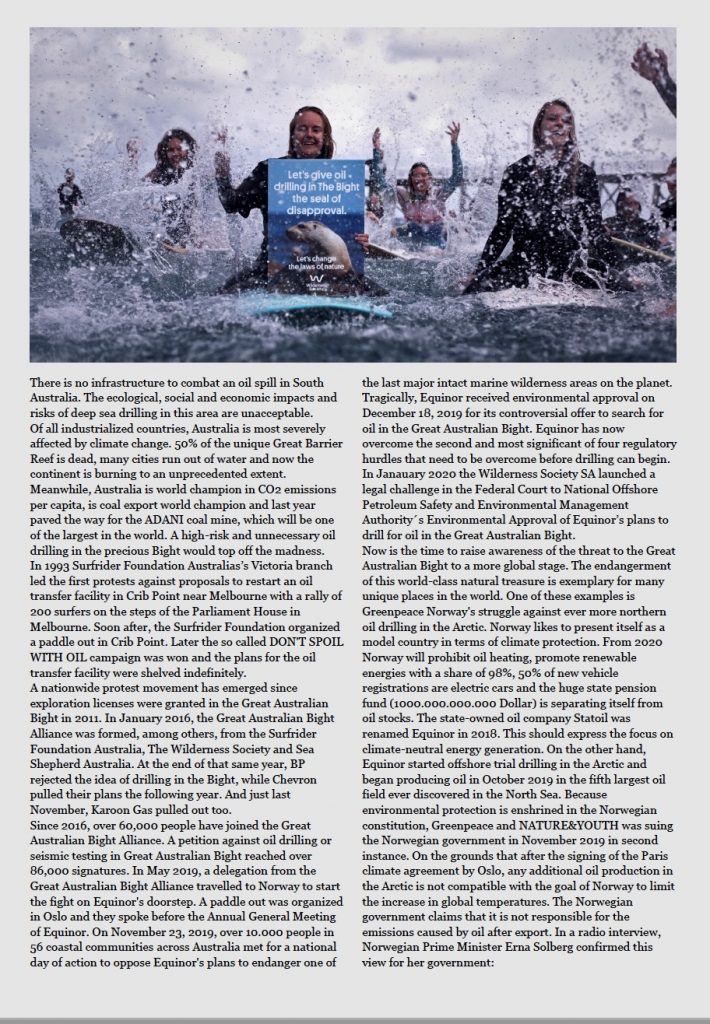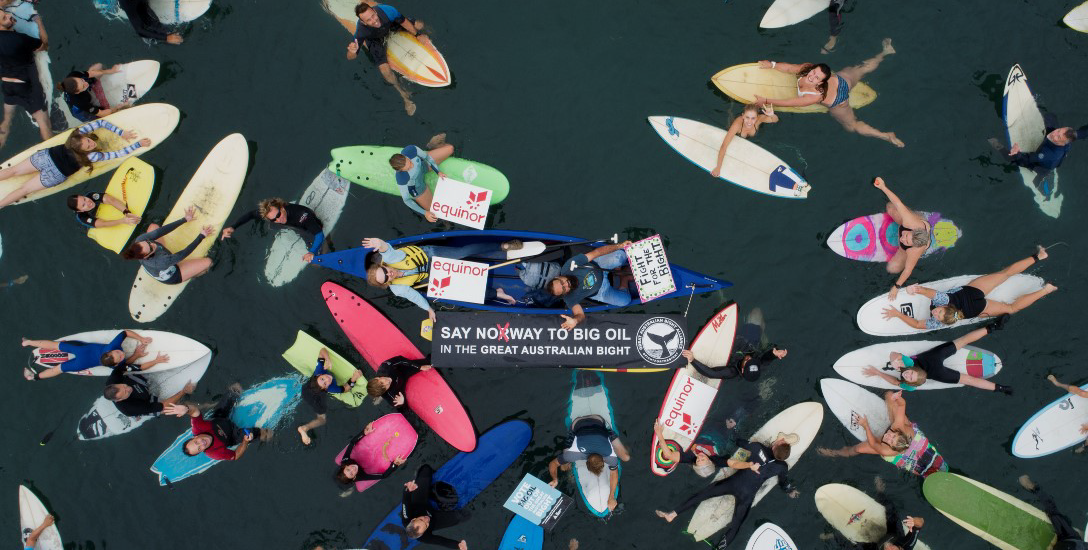Heute gibt es mal eine UferLeben Publikation in englischer Sprache aus dem diesjährigen Real Surfing Magazine.
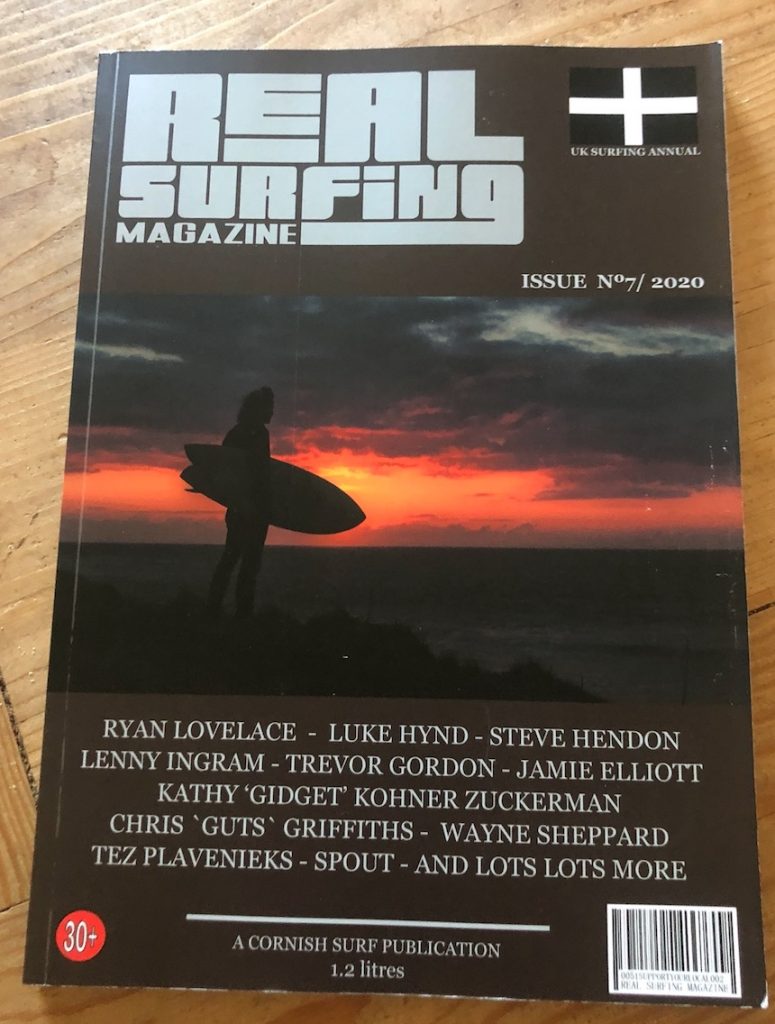
HANDS ACROSS THE OCEAN TO SUPPORT THE GREAT AUSTRALIAN BIGHT ALLIANCE
The liberal economist and Nobel Laureate Paul Krugman, wrote in his New York Times column on January 2, 2020 „Apocalypse will become the new normal – and that’s happening right in front of our eyes´´. Between Christmas and the start of the new decade, we could experience the consequences of the global climate crisis. While thousands of people in Australia were evacuated from widespread, unprecedented bushfires, ten thousands of people were displaced in Jakarta from a flash flood following the worst monsoon rain in 10 years and the warmest January day in Norway since weather recordings was documented at 19 ° C.
Meanwhile Germany has been in the fast lane in terms of global warming in the past decade. Between 2010 and 2019, 9 of the 10 hottest years have occurred since weather records started in 1881. I live in the small village called Dreiskau-Muckern in Saxony in the eastern part of Germany. Lignite was the main source of energy in the former GDR. Due to coal mining, associated chemical industries, coalheatings and coal power plants our region used to be one of the most polluted places in Europe. Our village had been subject to mining law since the 1950s. It was planned to expand the local open-cast mine to the municipal area between 1990 and 2000 to promote lignite reserves. As a result, the village was slowly depopulated and at the beginning of the nineties 50 of the former 500 inhabitants remained. Fortunately, after the fall of the iron curtain, the open-cast mine was closed and our village resettled again. In the past 30 years, the devastated area has developed into a liveable lake area with many retreats for endangered species. The natural areas that have emerged are currently threatened again by a tourist development based on old patterns with massive and misplaced infrastructural interventions and by settlement pressure from the nearby city of Leipzig. With the desire to make the development of our region more sustainable, we founded the association „UferLeben“ (which means „shore life“ in english) in 2017. UferLeben is committed to more public participation and ecological alternatives to land use. We offer diverse nature and environmental education for children and adults, founded a community garden in the village and established an organic regional market. In order to protect the lake surroundings and the endangered species living there, we started a petition last year which has already signed over 4300 after 3 months. Through our association work, a good regional network with other environmental associations and like-minded people developed. Without this network, we would still be just the few inhabitants of a tiny village with a different opinion today. Now we get our topics in the local press, are invited to appointments and sit in various committees including local politics. Despite this, the setbacks are unfortunately still more frequent than the successes.
Since there are no surfable waves in our lake area, I spent quite some time on the west coast of Cornwall and Devon and was lucky to have met Helene and Steve. Newquay has always been a must. Here I got to know and love the Real Surfing Magazine. In one of Stevo’s social media posts, I learned about the threat to the Great Australian Bight from planned deep-sea oil drilling by the Norwegian state-owned oil company Equinor (formerly Statoil).
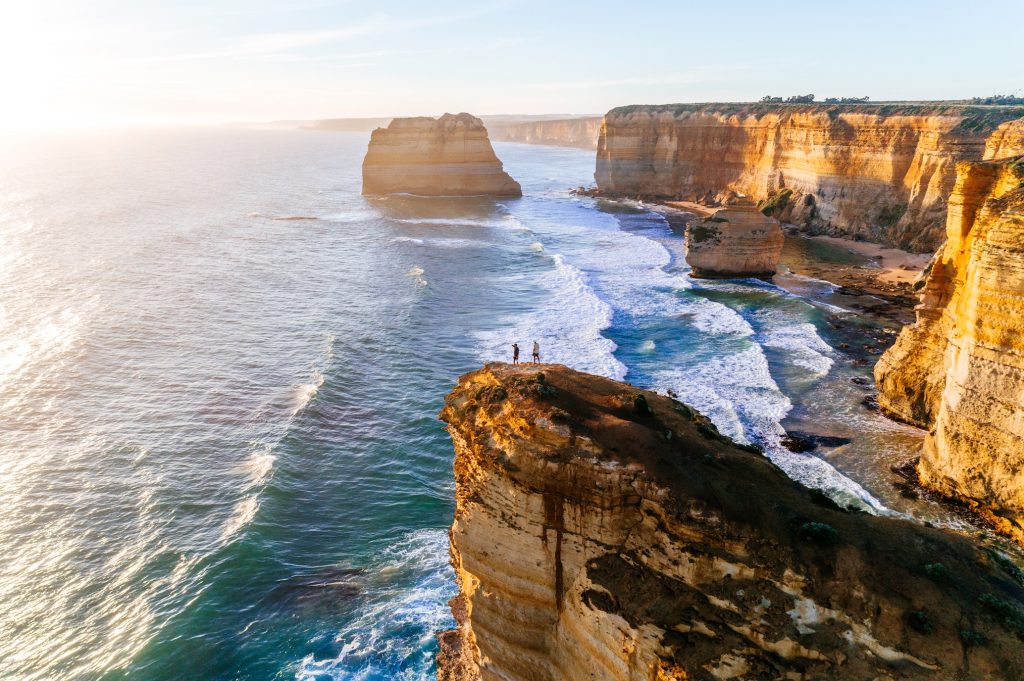
The Great Australian Bight, in the south of Australia, is one of the most unspoiled and rough marine environments in the world. It’s a vital nursery for the protected southern right whale and home to endangered Australian sea lions and more than 36 species of dolphins and whales. More than 85% of the animals and plants occur exclusively in the Bight and nowhere else in the world. Regardless of the fact that every drop of oil should remain in the earth in the context of the global climate crisis, Equinor’s plans involve high-risk deep sea oil drilling. The largest global oil spill to date was BP’s Deepwater Horizon tragedy in 2010 when exploration drilling resulted in 800 million litres of oil flowing into the Gulf of Mexico (GoM). Despite the fact that the Deepwater Horizon drilling took place in an area with an established offshore oil and gas industry with the existing infrastructure to deal with such disasters, it still took 87 days to stop the leak. 6,800 boats were involved in the Gulf clean up. Equinor’s proposed drilling area in the Bight is in deeper, more insidious, and more distant waters. Compared to the GoM well (depth: 1500 m, 70 km offshore) Equinor’s proposed drilling area in the Bight is in the Great Australian Bight Commonwealth Marine Reserve (depth: 2239, up to 370 km offshore).

There is no infrastructure to combat an oil spill in South Australia. The ecological, social and economic impacts and risks of deep sea drilling in this area are unacceptable.
Of all industrialized countries, Australia is most severely affected by climate change. 50% of the unique Great Barrier Reef is dead, many cities run out of water and now the continent is burning to an unprecedented extent. Meanwhile, Australia is world champion in CO2 emissions per capita, is coal export world champion and last year paved the way for the ADANI coal mine, which will be one of the largest in the world. A high-risk and unnecessary oil drilling in the precious Bight would top off the madness.
In 1993 Surfrider Foundation Australias’s Victoria branch led the first protests against proposals to restart an oil transfer facility in Crib Point near Melbourne with a rally of 200 surfers on the steps of the Parliament House in Melbourne. Soon after, the Surfrider Foundation organized a paddle out in Crib Point. Later the so called DON’T SPOIL WITH OIL campaign was won and the plans for the oil transfer facility were shelved indefinitely.
A nationwide protest movement has emerged since exploration licenses were granted in the Great Australian Bight in 2011. In January 2016, the Great Australian Bight Alliance was formed, among others, from the Surfrider Foundation Australia, The Wilderness Society and Sea Shepherd Australia. At the end of that same year, BP rejected the idea of drilling in the Bight, while Chevron pulled their plans the following year. And just last November, Karoon Gas pulled out too.
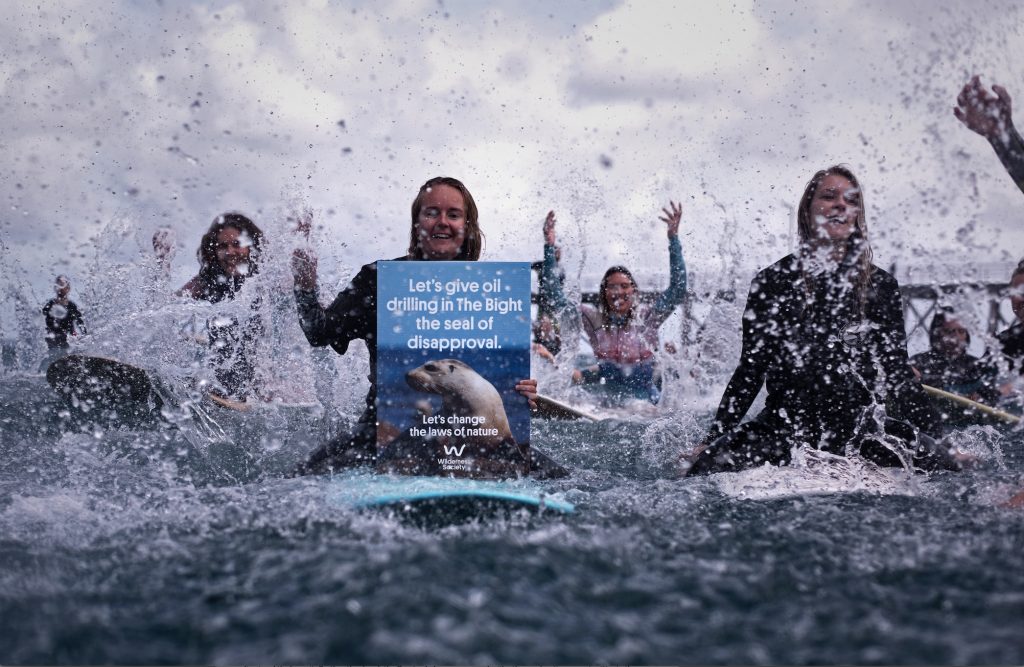
Since 2016, over 60,000 people have joined the Great Australian Bight Alliance. A petition against oil drilling or seismic testing in Great Australian Bight reached over 86,000 signatures. In May 2019, a delegation from the Great Australian Bight Alliance travelled to Norway to start the fight on Equinor’s doorstep. A paddle out was organized in Oslo and they spoke before the Annual General Meeting of Equinor. On November 23, 2019, over 10.000 people in 56 coastal communities across Australia met for a national day of action to oppose Equinor’s plans to endanger one of the last major intact marine wilderness areas on the planet.
Tragically, Equinor received environmental approval on December 18, 2019 for its controversial offer to search for oil in the Great Australian Bight. Equinor has now overcome the second and most significant of four regulatory hurdles that need to be overcome before drilling can begin. In Janauary 2020 the Wilderness Society SA launched a legal challenge in the Federal Court to National Offshore Petroleum Safety and Environmental Management Authority´s Environmental Approval of Equinor’s plans to drill for oil in the Great Australian Bight.
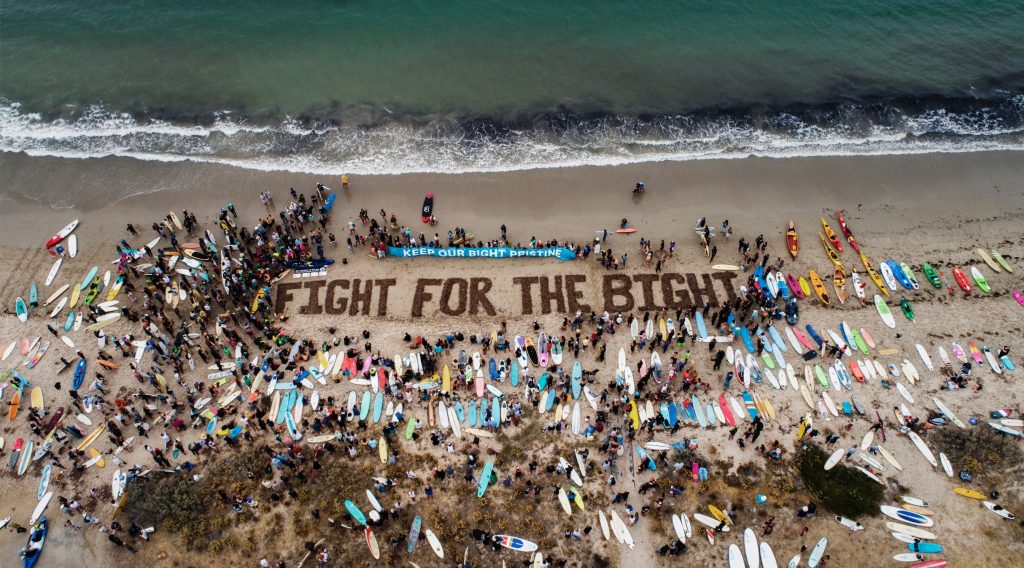
Now is the time to raise awareness of the threat to the Great Australian Bight to a more global stage. The endangerment of this world-class natural treasure is exemplary for many unique places in the world. One of these examples is Greenpeace Norway’s struggle against ever more northern oil drilling in the Arctic. Norway likes to present itself as a model country in terms of climate protection. From 2020 Norway will prohibit oil heating, promote renewable energies with a share of 98%, 50% of new vehicle registrations are electric cars and the huge state pension fund (1000.000.000.000 Dollar) is separating itself from oil stocks. The state-owned oil company Statoil was renamed Equinor in 2018. This should express the focus on climate-neutral energy generation. On the other hand, Equinor started offshore trial drilling in the Arctic and began producing oil in October 2019 in the fifth largest oil field ever discovered in the North Sea. Because environmental protection is enshrined in the Norwegian constitution, Greenpeace and NATURE&YOUTH was suing the Norwegian government in November 2019 in second instance.
„People, government and polluting industries across the world should take note: This is what can be achieved by a growing and powerful youth and environmental movement who are determined to take ownership of their human right to a sustainable future“ – Therese Woie head of Nature & Youth.
On the grounds that after the signing of the Paris climate agreement by Oslo, any additional oil production in the Arctic is not compatible with the goal of Norway to limit the increase in global temperatures. The Norwegian government claims that it is not responsible for the emissions caused by oil after export. In a radio interview, Norwegian Prime Minister Erna Solberg confirmed this view for her government: „The one responsible is the one who buys our oil.“ Richard J. Harvey, legal advisor to Greenpeace International, who attended the hearing in the Oslo lawsuit, said the government’s stance was a case of „climate schizophrenia“. On January 23, 2020, the Oslo Court of Appeal approved Norway’s plans for further oil exploration in the Arctic and dismissed the lawsuit. On the other hand, the Court ruled that the government is responsible for all emissions from oil drilled in Norway. Greenpeace immediately announced that the case would be appealed to the Norwegian Supreme Court. On February 24, 2020 Greenpeace and NATURE&YOUTH urged the Norwegian Supreme Court to rule on the legality of the country’s oil and gas exploration licenses for the Arctic.

Shortly before the editorial deadline, the good but also the bad news suddenly overturned. Worst things first: While surfers all over the world are fighting to protect the oceans and nature, an American investor wants to build a surf park, near to my village, on the edge of one of the largest nature reserves in our state. The investor expects 230,000 annual visitors. The number of visitors alone is a disaster for the biotope. The water for the park is to be taken from the protected lake. On the other hand, Germany suffers from persistent lack of rain and dry up entire forests. The investor calls the project: Centre for ecologically sustainable tourism and competitive sports. A farce! This project in such a sensitive place is in stark contrast to the values of surf culture and should not be realized. Now we are fighting against the surf park in cooperation with the Green Party and the largest German environmental association NABU. It is so terrifying to experience that the surf industry threatens nature.
Now for the incredibly good news: Equinor is out! On February 26, Equinor announced the withdrawal from the Great Australian Bight for economic reasons. Jone Stangeland, Equinor Australia: „Following a holistic review of its exploration portfolio, Equinor has concluded that the project’s potential is not commercially competitive compared with other exploration opportunities in the company“. This victory should be an encouragement for the global environmental movement. With combined strength and endurance, global companies like Chevron, BP and Equinor can be defeated. But the fight for the bight is not over yet. On the same day Keith Pit, federal minister for resources said: „The government was disappointed about Equinor’s decision, but pleased the company had made clear it would still be part of the oil and gas industry in Australia. The Bight basin remains one of Australia’s frontier basins and any proposals for new oil and gas fields in this area will be assessed fairly and independently“. Due to the existing drilling licenses, the Bight should be declared a nature reserve. This would nip future wishes of the oil industry and the Australian goverment in the bud. There is currently a Bill from Australian Greens Senator Sarah Hanson Young that looks to protect the area with a key longer-term point of the bill to establish a process for initiating UNESCO World Heritage listing for the Bight.
The Great Australian Bight is an example of the growing global threat to the last untouched natural areas. These are under massive pressure from short-sighted economic interests and increasing climate change. In the end, a global crisis needs a global response. Let’s connect and work together.
Spread the message (social media, local press…), get connected. Fight for your local nature!
Support and join the Great Australian Bight Alliance: https://www.fightforthebight.org.au/jointhealliance
Support and join The Wilderness Society: https://www.wilderness.org.au/work/great-australian-bight
Support and join the Surfrider Foundation Australia: https://www.surfrider.org.au/
Support and join Greenpeace Norge https://www.greenpeace.org/norway/
NATURE&YOUTH https://nu.no/english/
Support your local Green Party
Support and join UferLeben: http://uferleben.de/
